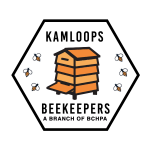Invasive Species
Invasive species are plants, animals or microorganisms that are not native to BC and which negatively impact BC’s environment, people and economy. When outside their natural distribution areas some species can spread rapidly, outcompete and predate on native species, dominate natural and managed areas and alter biological communities as well ecosystem functions. As of 2014, 978 invasive species are known to have established in BC and plants make up approximately
of 87% of the total. Being 2020 it would be expected that recent estimates are quite a bit larger. The horticulture industry has been identified as a major pathway for the introduction and spread of invasive species. British Columbia growers, garden centers, nurseries, plant specifiers and landscape professionals provide BC’s amateur and expert gardeners with an impressive assortment of ornamentals. Unfortunately, some ornamental plants possess characteristics unique to invasive
species. When they spread beyond the boundaries of a garden, accidentally or intentionally, they can cause ecological havoc on surrounding environments. Some typical traits exhibited by invasive plants include:
- Tolerate a wide range of growing conditions.
- Reproduce quickly by producing lots of highly mobile seeds, and/or underground
horizontal stems, and may be able to regrow from fragments of root, rhizome or stem. - Arrive to BC without natural predators, including insects and diseases, that kept them
in check in their native location. - Establish and spread without soil disturbance.
- Root deeply; difficult to remove.
- Grow and spread quickly, taking over sites; some plants have chemicals that prevent
other vegetation growth (I.e. Allelopathy). - Deter grazing by wildlife or livestock.
Plant Wise
PlantWise is a provincial program that supports the (ornamental) horticulture industry’s transition to become invasive-free. This program helps gardeners and industry make ‘PlantWise’ choices by identifying which plants are invasive and harmful to our communities. Started in 2014, this positive and motivating behaviour change program encourages gardeners to select only safe alternatives or native plants in place of invasive ones. Central to the PlantWise program is “Grow Me Instead” (GMI) – GMI was created to help gardeners identify invasives and find suitable and responsible native or exotic alternative species for their gardens. The GMI resource illustrates 26 of horticulture’s most ‘unwanted’ invasive plants frequently found in gardens across BC. Some of these ‘unwanted’ invasive plants are still sold at garden centers
and other retailers and are used by landscapers and landscape architects. Each invasive plant listed in GMI has suitable, and equally beautiful and functional, non-invasive plant alternatives that work well for a range of growing zones and conditions in the province. Invasive species are globally recognized as the second leading threat to biodiversity only behind habitat loss and destruction. As such, BC’s land managers are tasked with protecting BC’s natural biodiversity and helping combat invasive species. However, what can the average hobby/home gardener, beekeeper, landscaper or horticulturalist do?
To be PlantWise please consider some of the following best practices:
- Learn more about invasive plants in your area and know what ornamentals to grow and what to avoid:
- Be suspicious of ‘fast spreaders’, ‘vigorous self-seeders’, or ‘deep-rooted’ exotic plants.
- Consider using native plants, which often require less maintenance and pesticide use which is good news for pollinators.
- Include bee-friendly nectar and pollen-bearing plants in residential and commercial landscapes. Please refer to the new ISCBC “Understanding Pesticides and the Impact to Bees” factsheet for more details.
- Practice responsible treatment and disposal methods:
- Use species-specific control methods such as hand-pulling, herbicide or mechanical options.
- If pesticides are deemed necessary, ensure that the pesticide label is strictly adhered to. Minimize the need for insecticides by properly identifying insects, tolerating pests below treatment thresholds and trying alternative control methods before using chemical products.
- Do your research to minimize not target effects when using a pesticide and apply as close as possible to the target pest to minimize pesticide drift. Please refer to the new ISCBC “Understanding Pesticides and the Impact to Bees” factsheet for more details.
- Dispose of invasive plants responsibly:
- Bag and dispose of invasive plants at your local transfer station
- Do not dump invasive plants/plant parts in public parks or natural areas
- Do not compost invasive plants/plant parts
- Network with others actively interested in managing invasive plants in BC.
Useful Resources and Links
For those interested in learning more about invasive species and making a difference please see the following links and resources. There is a breadth of information and resources on the ISCBC website to help encourage activities to prevent the establishment and spread of invasive species in British Columbia.
PlantWise – http://beplantwise.ca/
Grow Me Instead – A PlantWise resource that illustrates 26 of horticulture’s most ‘unwanted’ invasive plants frequently found in gardens across BC. Each invasive plant listed in Grow Me Instead has suitable, and equally beautiful and functional, non-invasive plant alternatives (native and exotic) that work well for a range of growing zones and conditions in BC
Be PlantWise Factsheet
Invasive Plants in Agriculture and Horticulture Factsheet
Understanding Pesticides and the Impact to Bees Factsheet
All ISCBC Factsheets – https://bcinvasives.ca/resources/tips/
Archived Webinars
- Invasive Species 101 by Nick Wong, Research and Project Coordinator (Invasive Species Council of BC)
- Know What You Grow by Jennifer Adhika, NATS Nursery (an official PlantWise partner of ISCBC)
- How to Inspire Gardeners to Grow Native Plants – Bringing Back the Natives Garden Tour by Kathy Kramer, Kathy Kramer Consulting
Join ISCBC as an individual member or business! https://bcinvasives.ca/join
Keep up to date on the latest invasive species information in BC by signing up for ISCBC enewsletters. Visit the E-news webpage to sign up and view previous posts.
